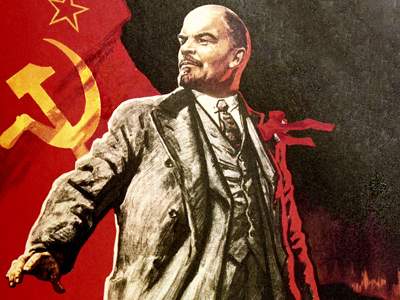
An insight into how The Four Horsemen: revolution, war, pandemics and state collapse, engineered the fall of wealth across history, writes Ian McLennan
Scheidel concludes that, with revolution, total war, pandemics and state collapse being remote prospects today, the scene is set for further rises in inequality.
Rising inequality within countries has been a hot topic of late as wealth has become more unevenly spread not only in the G7 but in emerging market giants such as China and Russia, which may partly explain the rise of Trump, Corbyn and even Brexit. Of course, inequality is far from a new phenomenon and its history is recounted in some depth in Walter Scheidel’s new book in which he focuses particularly on the factors that have caused sharp reduction in historic inequality. He concludes that wealth is only significantly reduced when one of four cataclysmic events occur: the collapse of states, pandemics, large scale revolutions and mass-mobilisation warfare. The author labels these catalysts of dramatic wealth levelling, rather apocalyptically: The Four Horsemen.
Before humanity gave up its hunter-gathering and took to farming some ten to twelve thousand years ago, inequality was a relatively minor matter because the resources so gathered did not supply a standard of living much above bare subsistence levels. There was simply too little surplus food or income to allow for significant disparities in wealth. But it all changed come agriculture, where a surplus was created, which was then taxed, plundered or paid as rent to elites, whether they were princes, bandits or landlords.
The evidence suggests that more stable state structures allowed the elites to extract more of the surplus produce. For example, archaeologists have found a sharp rise in the dispersion of house sizes in England during the period of Roman rule, in comparison to the preceding Iron Age. But within a few hundred years the Roman elites and their grand properties had receded again. Their decline was the result of Scheidel’s first Horseman, state failure via the fall of Rome. Without access to the security, commerce and corruption of the Imperial state, wealth was scattered.
By the late Middle Ages, wealth and income inequality had risen again in Europe, including the commercially astute north Italian cities, such as Genoa. In fact, it was Genoese merchant ships that inadvertently carried rats from the Crimea to Sicily in 1347, and with them the fleas carrying the bubonic plague. The resulting second Horseman, the Black Death, wiped out a third of the European population, and more in England, while leaving physical assets untouched. With fewer people around after the plague, rents from land plummeted while the value of unskilled labour to work the land rose significantly, thus sharply reducing inequality despite various state attempts to curb the rise in wages.
Scheidel devotes considerable space to the significant and sustained fall in inequality in the 20th century and its subsequent rise again from around 1980 onwards. In countries such as the UK, France, Russia and the USA the share of national wealth owned by the top 1 per cent peaked just prior to World War I. That war was the first example of the third Horseman, ‘total war’, involving mass mobilisation in many countries. Elite wealth ‘was not only redistributed but effectively wiped out in the war period’ by the combined effects of physical asset destruction, increases in taxation, money printing and regulation and the wider societal implications that led to more progressive taxation and advances for democracy, trades unions and welfare states. These effects were repeated but on a grander scale during and after World War II, the aftermath of which even saw the US authorities promoting radically egalitarian land reform in post-war Japan and South Korea. All of this had significant levelling effects.
Scheidel’s final Horseman, revolution, achieved dramatic reductions in wealth and inequality only in the extreme cases of the Russian and Chinese communist revolutions of 1917 and the late 1940s respectively. The French Revolution, on the other hand, while bloody and dramatic, resulted in only 3 per cent of farmland being redistributed to the peasant class.
Scheidel is unimpressed by the impact of other potential levelling influences. Financial crises, even severe ones such as 2007-09, are described as having only mixed or temporary effects on inequality. Even the spread of democracy, while often associated with more progressive taxation, is judged to have had inconclusive effects on inequality. This gives some pause for thought for both supporters and opponents of Jeremy Corbyn; this book suggests that, historically, peaceful reform of land, debt or even slavery, has had only limited equalising effects.
Scheidel concludes that, with revolution, total war, pandemics and state collapse being remote prospects today, the scene is set for further rises in inequality. Yet, writing before Brexit and Trump, the author also sanguinely concluded that ‘globalisation, which has been credited with dis-equalising effects…shows no sign of abating in the near future’. No sooner had these words been written than internationalism and free trade were called into question by voters in the UK and USA. Nevertheless, this is a valuable book of economic history, though its exhaustive nature may deter some general readers.
Ian McLennan is a partner at Triple Point LLP and an economic historian







